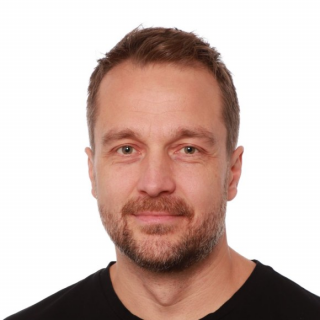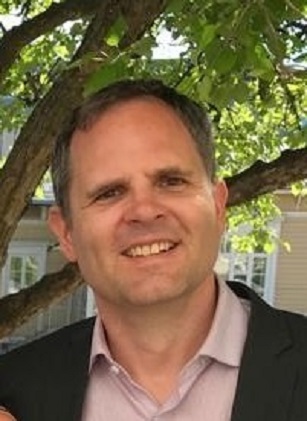Meri Koivusalo, Co-director of our Collaborating Centre, is professor of global health and development. She has engaged with analysis of HIAP in Finland and in the context of European Union policies and how to address HIAP under multilevel governance and how HIAP relates to economic and commercial policies. She is currently involved in analysis of common interests on health policy and HIAP as strategic analysis for health policy priorities. She has published on policy space for health, commercialization and health, health and trade, and using framework of regulation, rights and redistribution as a tool for analysing implications for HIAP.
Meri’s most relevant publications on HiAP and SDH: Publications

Salla Atkins, PhD (Medical Sciences), Co-director of our Collaborating Centre, is a professor in global health at Tampere University and Karolinska Institutet. She has extensive experience in social determinants of health research, from high, middle, and low-income countries. She has published extensively on these topics with international collaborators. Atkins currently leads research studies on social determinants of health, particularly poverty, social protection including with a focus on tuberculosis, migration as a social determinants of health, and the impact of Covid-19. She is the Tampere University representative on the board of the Finnish Universities’ Network in Development Studies (UniPID), and the national Publication Forum. Before joining Tampere University, she worked in the South African Medical Research Council, Finnish Institute of Occupational Health, and completed postdoctoral studies at Karolinska Institutet, Sweden and consulted for international universities and organisations.
 Lauri Kokkinen, PhD (social and health policy), Co-director of our Collaborating Centre, works as a Research Director. He has extensive experience in realist evaluation of HiAP implementation and social determinants of health and he has published on these themes in highly ranked international journals. Kokkinen participates in several international research consortiums (e.g., HARMONICS consortium studying HiAP implementation in several jurisdictions representing five continents) and serves in the multisectoral Finnish Advisory Board for Public Health. Before joining Tampere University, he did post-doctoral training at the University of Toronto and the Finnish Institute of Occupational Health.
Lauri Kokkinen, PhD (social and health policy), Co-director of our Collaborating Centre, works as a Research Director. He has extensive experience in realist evaluation of HiAP implementation and social determinants of health and he has published on these themes in highly ranked international journals. Kokkinen participates in several international research consortiums (e.g., HARMONICS consortium studying HiAP implementation in several jurisdictions representing five continents) and serves in the multisectoral Finnish Advisory Board for Public Health. Before joining Tampere University, he did post-doctoral training at the University of Toronto and the Finnish Institute of Occupational Health.
Lauri’s most relevant publications on HiAP and SDH: Publications
Eeva Ollila is an internationally acknowledged expert in HiAP and health policy. She has worked as a ministerial adviser in Finnish Ministry of Social Affairs and Health. She currently works as a senior doctor in Cancer Society of Finland. She also works as an adjunct professor in health policy in Tampere University. She is experienced in implementing national-level HiAP, EU and WHO policies. She had a key role in 8th Global Conference on Health Promotion held in Helsinki 2013, and the edition of “Health in All Policies: Seizing opportunities, implementing policies” (2013).

Timo Ståhl is an internationally well-known expert in health promotion and Health in All Policies. He currently works as a team leader for Knowledge base for health and welfare management unit at the Finnish Institute for Health and Welfare. He has engaged with HiAP at municipal level, especially on monitoring and enhancing incentives for health promotion and HiAP. He worked in WHO before the 8th Global Conference on Health Promotion held in Helsinki 2013. Timo is an adjunct professor in Tampere University and associated with our centre.
Affiliated
Pilvikki Absetz is a behavioural scientist and professor of public health at Tampere University. She is an internationally acknowledged expert in theories, models and frameworks in implementation research focused on health promotion and prevention and management of non-communicable diseases in real-world settings, and serves in this capacity as a senior faculty member of the Global Alliance for Chronic Diseases annual Implementation Science Schools. Absetz is a co-investigator in several international research projects such as the Kerala Diabetes Prevention Program in India; the SMART2D Project for Self-Management and Reciprocal Learning for Type 2 Diabetes in South Africa, Sweden, and Uganda; and the YiPEE Project (Youth co-Production for sustainable Engagement and Empowerment in health) in India, Kenya, South Africa, and Sweden. Her publications in public health and implementation research journals can be accessed here.
Rinna Kullaa is an Associate Professor in Global History. She teaches global history focusing on recent history and contemporary phenomena including those related to social determinants of health. Her courses including ‘European Union and the World’, ‘Global World’ and ‘Crises and their Resolutions in Global History’ discuss social and health policy from the perspective of global history. Kullaa has experience in field work in Africa, the Balkans, the Middle East, Russia and Europe. She was educated at Columbia University (BA), the University of Oxford (MPhil) and at the University of Maryland, College Park (PhD). She has worked in many international universities throughout her career as well as at United Nations in New York. Her research focus combines the study of diplomacy and health related phenomena overtime and is grounded in multilingual interdisciplinary approach.
Per Ashorn works as Professor of Paediatrics and Director of the Center for Child, Adolescent, and Maternal Health Research at Tampere University, Finland and as a part-time Chief Physician at the Department of Paediatrics at Tampere University Hospital. He is a specialist in paediatrics and paediatric infectious diseases, and he has worked as a laboratory scientist, a clinician, a public health specialist, an administrator, and a university teacher. He has conducted research and been involved in academic teaching and public health in four continents and worked at the World Health Organization to translate knowledge into guidelines and policies. Dr. Ashorn’s research has mainly focused on maternal and child health in low-income settings, with a special emphasis on the interaction between infections, preterm birth and undernutrition on various health outcomes. Dr. Ashorn has published close to 300 scientific articles and supervised some 30 graduate or post-graduate students on their thesis work.
Linda Enroth, PhD (health sciences), is a senior fellow with background in public health and gerontology. She has expertise in studying social determinants of health in very old age and she is a principal investigator of the Vitality 90+ study. Her current work relates to social determinants of health, healthy life expectancy and health and social care use in old age and their changes over time. Enroth is involved in Nordic research collaboration through Social Inequalities in Ageing (SIA) project and she is a member of Expert Platform on Oldest Old Research across Europe (EXPLOORE). List of publications.
Assistant professor (tenure track) Satu Ojala studies social security and active labour market policies (ALMPs) as determinants of decent employment careers. Too often, the population out of labour force suffers from lowered work ability, which can be both a cause and an outcome of unemployment. In her research project Employment and Social Security Careers of the Population out of Labour Force (Kone Foundation 2021–2025), the links between the receipt or lack of receiving social benefits and employment services, health and attachment to employment are studied using the total population register data provided by Statistics Finland and the Ministry of Economic Affairs and Employment (ALMP measures).
Anu Linnansaari, PhD (public health), is a public health researcher at Tampere University. She has been engaged in multiple international research projects focusing especially on health promotion, tobacco policies and adolescent health and wellbeing. Her own research has particularly centered on explaining the implementation of healthy public policies and health promoting environments at various levels, such as the national and school organisational levels, and the role of context in policy implementation. Methodologically, Linnansaari has specialized in cross-country research design, qualitative methods, and realist approach. Linnansaari’s professional roots lie in education, and she continues to write health education textbooks for upper secondary school while also actively seeking to make an impact across various sectors of society. Her publications can be found here.
Kimmo Suokas, MD, is a psychiatrist and researcher with a special interest in social determinants of mental health and psychiatric epidemiology. He was awarded the EPA (European Psychiatric Association) Research Prizes in 2011 in the category of Psychiatric epidemiology, social psychiatry and psychotherapeutic interventions in mental disorders. In addition to clinical psychiatry and register-based research projects, he is currently working in the Finnish Quality of Psychosis Care Registry.
Sami Pirkola, M.D., Ph.D., works as a professor of social psychiatry and serves as the Research Vice Dean for the Faculty of Social Sciences at Tampere University in Finland. He is a psychiatrist and psychiatric epidemiologist by profession. Professor Pirkola has been publishing international scientific papers since 1999, and his primary research projects have focused on nationwide data collections related to suicides, the prevalence of mental disorders, and the effectiveness of mental health services in Finland. He also chaired the task force responsible for producing the National Mental Health Strategy in Finland for the period of 2020-2030.
Pasi-Heikki Rannisto works at the University of Tampere’s Faculty of Management and Economics as a research director and the head of the Management, Administration, and Evaluation Research Center (TAUGO). He has participated in numerous management evaluation and development projects, including recent evaluations of Finland’s COVID-19 management and the operating models of the cities of Helsinki and Tampere. Rannisto served as a professor of social and health care management from 2017 to 2021 and currently serves as the program director of SotEMBA.
Pekka Nuorti, MD, PhD, is a professor of Epidemiology and the Director of the International Doctoral Program in Epidemiology and Public Health at Tampere University. Professor Nuorti has dedicated over thirty years to the prevention and control of infectious diseases in various settings, including the World Health Organization, the U.S. Centers for Disease Control and Prevention, the California Department of Health, and the Finnish Institute for Health and Welfare. He has tracked and responded to outbreaks, epidemics, and pandemics worldwide. Professor Nuorti is an internationally recognized expert in infectious disease epidemiology, vaccine-preventable diseases, research training and capacity building, and the development and evaluation of public health policies. At Tampere University, he leads an international research group titled “Infectious Disease Epidemiology and Vaccine Programs in Public Health Practice” and has trained a new generation of epidemiologists in numerous countries.
Mikko Perkiö, PhD, serves as a university teacher at Tampere University. His research focuses on various aspects of social security, platform work, and the informal sector. As the Principal Investigator, Dr. Perkiö successfully led the Occupational Risks of Food Delivery (ORIFODY) project, which was funded by the Finnish Work Environment Fund (Työsuojelurahasto). The project analyzed the perceived risks associated with food delivery work conducted on platforms such as Wolt and Foodora, comparing them with similar activities in salaried or entrepreneurial roles within the grocery and transportation sectors. The investigation into the health and safety conditions of platform workers across Europe is ongoing within the GIG-OSH consortium, in which Perkiö contributes as a senior expert. Dr. Perkiö teaches the nexus of social policy and global public health as well as environmental health in the Public and Global Health master’s programme. He also coordinates SAFINET, Southern African and Finnish Higher Education Institutions’ Network for Health and Well-Being. The network brings together over 130 scholars across Finland’s universities aiming to connect them better with Southern colleagues. See publications.
Roosa Lambin (DPhil, University of Oxford) is an affiliated member of the WHO Collaborating Centre and a Visiting Research Fellow in Social Policy at the Open University. Her work is focused on global social policy, social policy developments in sub-Saharan Africa and the role of philanthropic organisations in global health. Her work has been published in top journals, and Roosa has a track record of policy-facing research, most recently regarding the prospective Global Social Protection Fund. Roosa has also experience from working in the UN system, most recently at the UNU-WIDER where she researched social protection and employment policies from a gender perspective in the Tanzanian context.
Subas Neupane, PhD, is an occupational epidemiologist currently working as a senior lecturer at Tampere University. He has extensive experience working with longitudinal datasets with long follow-ups, register-based studies, multi-cohort, and multi-country data, as well as advanced statistical modeling. Previously, he worked as a consultant for the World Health Organization (WHO), developing methodologies to estimate exposure to occupational risk factors over time to calculate the burden of occupational diseases. He also worked in a WHO-ILO collaboration project to develop a joint methodology for estimating the national and global work-related burden of diseases and injuries. Additionally, he worked as a consultant for the International Commission on Occupational Health (ICOH) on the occupational burden of disease. Currently, he leads a project on individual participant data meta-analysis of a multi-cohort study (funded by the Research Council of Finland), data mining in health cohort data, work, health, and retirement, as well as the work-related burden of diseases. His research interests also include social determinants of health, health inequalities, and maternal and child health in low- and middle-income countries.
Dr. Vaittinen is a generalist social scientist, specialised in the global political economy of health and social care. She holds a PhD in Peace and Conflict Research (2017, Tampere University), MA in Places, Spaces and Transnational Relations (2009, University of Tampere), and BScEcon in International Politics (2004, University of Wales Aberystwyth). Her fields of expertise include global health worker migration, feminist ethics of care, gendered global health, political economies of old age care, sustainable continence care, and material impacts of health technologies on the planet. In her latest project, she has mapped the global political economy of adult incontinence pads asking, how humanity’s material needs of basic care can be made to fit within the planetary boundaries. The project resulted in a model of holistically sustainable continence care, which essentially calls for Continence Health in All Policies, to reduce the environmental impact of our most basic and everyday care needs. To advance this aim, Vaittinen continues to work with different stakeholders, such as the European Association for Urology’s Urge to Act campaign. She is also the co-editor of Gender, Global Health and Violence: Feminist Approaches to Peace and Disease (with Catia C. Confortini, Rowman and Littlefield, 2019) and the Edinburg Feminist Studies on Peace, Justice and Violence book series (with Catia C. Confortini and Shweta Singh). Her full CV and publications are available through this link.
Dr. Sohail is a postdoctoral research fellow at Tampere University. He is an Epidemiologist with PhD in Environmental Epidemiology, MS in Public Health, and bachelor’s in pharmacy. His areas of expertise include working on register-based studies, multicounty data, timeseries methodologies, survey studies, longitudinal studies and working on cross-sectional study designs. Hasan has also worked in international collaborative project with Institute of Epidemiology, Helmholtz Germany and Finnish Institute for Health and Welfare. He also has an extensive experience of working voluntarily with several NGOs. His other research interests include health disparities in migrant populations, social determinants of health and exploring health effects of changing weather conditions.
Dr. Sarkar is a public health academic and policy advocate whose work critically examines the political economy and governance of health systems within international development. He brings over eighteen years of experience across public health practice, research, and policy engagement, with a sustained commitment to global health justice, equity, and solidarity. He is currently a Public Health Fellow at the Health Sciences Unit, Tampere University. His research focuses on health systems policy, development financing, and global health governance, particularly in low- and middle-income country contexts. He is also a Research Fellow at the United Nations Research Institute for Social Development (UNRISD) in Geneva. Amitabha completed his PhD in Public Health at the Centre for Social Medicine and Community Health, Jawaharlal Nehru University (JNU), India, in 2020. His doctoral research analysed the evolution of development financing strategies in shaping health systems policies and programmes between 1975 and 2019, using a policy process analysis to unpack the institutional, political, and financial mechanisms underpinning international health development. This work provides critical insights into how global financing architectures influence national health system priorities and policy trajectories. Amitabha’s public health perspective is grounded in understanding the production of disease within social, political, economic, and ecological spaces, and in developing appropriate policy recommendations and programmatic interventions responsive to these dynamics. Methodologically, his forte lies in systems analysis and design science, which he applies to the development of public policies informed by public health relevance, social context, and equity considerations. His work integrates policy analysis, systems thinking, and normative frameworks to support the design of equitable, resilient, and sustainable health systems. During the COVID-19 pandemic, he served as a China-India Visiting Scholar (2020-2021) at the Department of Global Health, Peking University, contributing to the South Asia Public Health Preparedness Action Plan. He was also a Swiss Government Excellence Fellow in Global Public Health (2022-2023) at the Global Health Centre, Geneva Graduate Institute. Amitabha has authored numerous peer-reviewed publications and international policy reports and regularly contributes public-facing commentary, while advising several regional and international bodies.
Lan Nguyen
Lan Nguyen is a global public health professional with over 17 years of experience working in low-resource settings. She has led large-scale tuberculosis prevention and response initiatives in Vietnam, with a particular focus on community-based interventions and health systems strengthening. She currently serves as Executive Director of FIT RD, a social enterprise dedicated to improving access to healthcare for vulnerable and underserved populations. Lan holds a Master’s degree from the Harvard T.H. Chan School of Public Health and is currently a doctoral candidate in the Global Health and Social Policy Department at Tampere University. Her research focuses on the intersection of tuberculosis, social protection, and policy advocacy, with an emphasis on sustainable, equity-oriented health financing and systems reform.

